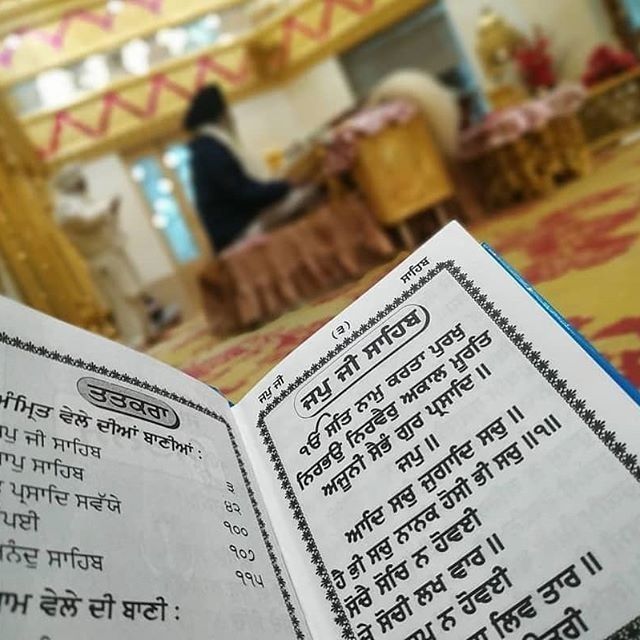Gurbani recitation is a sacred practice, but there are times when personal Paath should be paused out of respect and mindfulness. Here are five key situations where you should avoid reciting individually:
1. During Kirtan or Gurbani Katha in the Sangat
When attending a Gurdwara where Raagis are performing Kirtan or a scholar is explaining Gurbani, refrain from opening your Gutka Sahib for personal recitation. Just as it would be disrespectful to read a different book loudly while a teacher is giving a lesson, personal Paath during Kirtan or Katha distracts both yourself and others. Instead, listen attentively—Gurbani is meant to be absorbed with full focus.

2. While Eating or Handling Food
Gurbani should be recited with a clean body and mind. Eating or being occupied with meals divides attention, making it difficult to maintain proper reverence. It’s best to recite before or after eating rather than during.

3. When Angry, Distressed, or Mentally Agitated
Gurbani is about connecting with the Divine in a state of humility and peace. If you’re overwhelmed with anger, sadness, or frustration, first calm your mind before reciting. Forced recitation in such a state lacks devotion and may even feel insincere.
4. In Impure or Unclean Surroundings
Just as we bathe and dress respectfully before entering the Gurdwara, the space where we recite Gurbani should also be clean and free from distractions. Avoid reciting in places of impurity (like bathrooms) or where there’s excessive noise and disorder.
5. Half-Heartedly or as a Mere Routine
Mechanical recitation without understanding or devotion loses its essence. If you’re reciting just out of habit, rushing through the words without connecting to their meaning, it’s better to pause, reflect, and restart with a focused mind.
Final Thought
Gurbani is not just about reciting—it’s about absorbing, living, and respecting its sanctity. By avoiding these five situations, we ensure our Paath is meaningful and done with the reverence it deserves. Sat Sri Akal.







